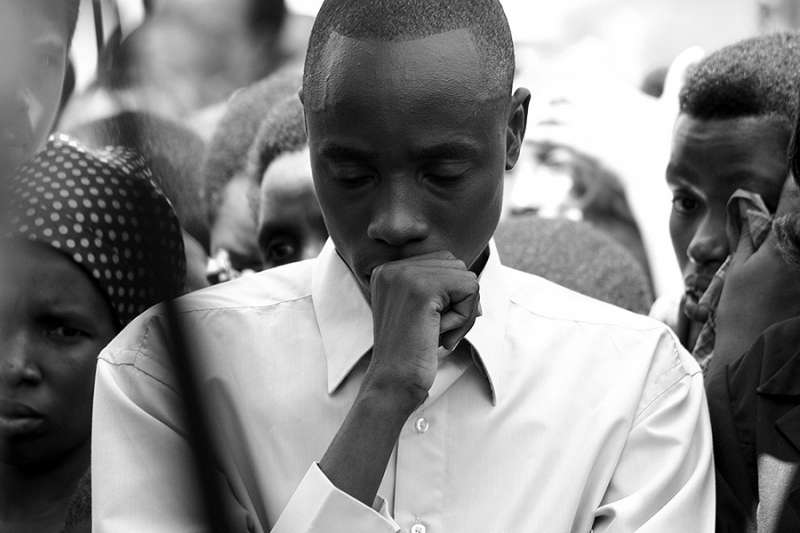The Catholic bishops of Rwanda have apologized for calling for the release of old and ill prisoners convicted for crimes committed during the country’s 1994 genocide.
“We wrote to Christians, encouraging them to continue promoting unity and reconciliation, while also seeking forgiveness,” the bishops said in an April 7 statement signed by Bishop Phillippe Rukamba of Butare, the president of the Rwandan bishops' conference.
“This letter caused a lot of hurt, especially for what we requested on behalf of the elderly and sickest who are still in prison for the crime of genocide. We are saddened it offended people – this was not what we intended,” the bishops said.
The bishops had issued a pastoral letter March 25 commemorating the victims of the genocide, urging reconciliation and forgiveness in the face of violence, but including a sentence exhorting those responsible for older or sick perpetrators to “examine whether their sentences can be reduced.”
Twenty-five years ago this month, ethnic tensions in Rwanda boiled over as members of the Hutu ethnic majority took up machetes and turned on their minority Tutsi neighbors, friends, and colleagues, killing them based on the color of their skin and the width of their nose.
In the 100-day genocide that followed, it is estimated that 1 million people were slaughtered.
Rwandans marked the anniversary of the tragedy April 7 at the Genocide Memorial Center in the capital city of Kigali. President Paul Kagame and leaders from Africa and the European Union were in attendance, the Catholic Information Service for Africa reported.
The bishops apologized for issuing the pastoral letter during the period of commemoration.
"After this tragedy of genocide against the Tutsis, the light of the Lord's resurrection was not quenched –asking and giving forgiveness can become a means of building a tomorrow for everyone," the bishops said.
In the 1994 genocide, clergy members were included in the ranks of both perpetrators and victims. In some cases, Hutu priests, bishops. and religious helped to hide and protect Tutsis. In other cases, they took up arms against them, ushering them into church buildings with false promises of security and then trapping and betraying them, facilitating their massacre.
The Church has since played a large role in helping to promote reconciliation and forgiveness. More than half of Rwanda’s population is Catholic.
The country’s bishops in November 2016 issued an official apology for Christians’ role in the genocide.
“We apologize for all the wrongs the Church committed. We apologize on behalf of all Christians for all forms of wrongs we committed. We regret that church members violated (their) oath of allegiance to God’s commandments,” they wrote.

